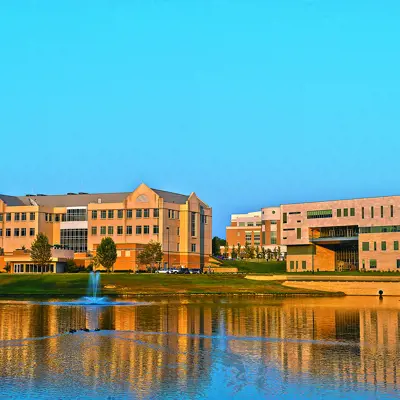
June 29, 2022
The University of Southern Indiana hosted a global climate change workshop featuring six areas of discussion Tuesday, June 28 and Wednesday, June 29 in the Griffin Center, located on the USI campus. Over 20 established scholars, early career scholars and graduate students were in attendance from across the United States as well as several international scholars from Canada, Sweden, and Germany [virtually attending]. While the workshop is not open to the public, it has the potential for academic and public impact in years to come.
The six areas of discussion include:
The workshop, co-organized by Dr. Stephen Zehr, USI Professor of Sociology; Dr. Myanna Lahsen, Associate Professor in the Department of Thematic Studies at Linköping University in Linköping, Sweden; and Dr. Roopali Phadke, Professor of Environmental Studies at Macalester College in St. Paul, Minnesota, provided attendees insight on future research questions, provided pedagogical guidance in the classroom and fostered global collaboration for future research and discussion on the topic.
"This workshop is targeted at clarifying what science, technology and society (STS) research has accomplished and what still needs to be done," Zehr says. "The interdisciplinary field of STS contains concepts and theory which offer an inroad into this complexity and can help guide solutions along sustainable and equitable paths. While many angles in this research will be discussed, one that stands out is a deeper understanding of how sociotechnical transitions occur (e.g., from fossil fuel to renewable energy sources) and how they can be facilitated. These transitions often face resistance from entrenched economic interests, laws, cultural practices, political resistance, limited suppliers, etc., and may not initially appear economically rational. STS has the tools to understand how this resistance can be overcome in ways that are sustainable and more equitably distributed."
The workshop, funded by the National Science Foundation's Science and Technology Studies (STS) program, was first pitched to Zehr in 2019 while attending the Society for Social Studies (4S) annual conference in New Orleans, Louisiana. The pandemic put the project on hold, but Zehr, who served as Secretary of 4S for 8 years, was finally able to help make the workshop a reality this year.
The workshop format offers an opportunity to bring together senior level and early career researchers to explore ideas and help shape the next generation of climate change research. In addition to the research value, a workshop goal is to produce materials and ideas that improve undergraduate STS courses on climate change and other environmental issues. At the conclusion of the 2022 workshop, scholars will begin constructing a formal document on the topic to be distributed broadly in the future.